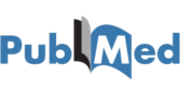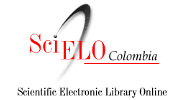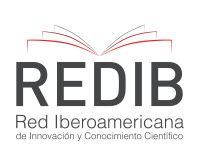Some reflections on problem-based learning (PBL): an alternative in medical education
DOI:
https://doi.org/10.18597/rcog.547Keywords:
medical education, problem based learning (PBL), constructivism, andragogyAbstract
This article suggests that problem-based learning (PBL) could be a better alternative for medical training’s current needs. Recommendations are based on those made by the American Association of Medical Colleges and the Colombian National Academy of Medicine. Cognitive psychology is reviewed (i.e. constructivism and andragogy) as being the conceptual basis for PBL. Descriptive, prospective and analytic articles concerning the results of research in this field being conducted in schools of medicine from differing cultures having the greatest experience in applying PBL to date have also been reviewed. The article concludes by emphasising that it is worth applying PBL in Medical Schools as it leads to a significant improvement in teachers and students’ satisfaction and, ipso facto, an improvement in the flow of students’ knowledge within the teaching-learning process as they become actively engaged in it.Author Biography
José Luis Tarazona
References
Mullers S. Physicians for the XXI century. J Med Educ 1989;59(part 2):1-31.
Patiño JF. Medicina basada en evidencia. En: Patiño JF, Mendoza J (eds). Informática, educación y salud en la sociedad de conocimiento. Bogotá: FEPAFEM, COLCIENCIAS, Academia Nacional de Medicina; 2001.
Carretero M. Constructivismo y educación. 8 ed. Buenos Aires: Aique Edit.; 2001.
Berk LE, Winsler A. Scaffolding children’s learning: Vygotsky and early childhood education. Washington, DC: National Association for the Education of Young Children; 1995.
Savery JR, Duffy TM. Problem based learning: an instructional model and its constructivist framework. En: Wilson BG (ed). Constructivist learning environments: case studies in instructional design. New Jersey: Educational technology publications Inc. Englewood Cliffs; 1996. p. 134-47.
David TJ, Patel L. Adult learning theory, problem based learning, and paediatrics. Arch Dis Child 1995;73:357-63.
David TJ. PBL in medicine. London: The Royal Society of Medical Press; 1999.
Kaufman DM. Applying educational theory in practice. BMJ 2003;326:213-6.
Lieb S. Principles of adult learning disponible en: http://Honolulu.Hawaii.edu/intranet/committees/Fa-cDevCom/guidebk/teachtip/adults
Venturelli J. Educación médica. Nuevos enfoques metas y métodos. Washington DC: OPS oficina regional OMS; 2003.
Albanese MA. PBL: problem-based learning: why curricula are likely to show little effect on knowledge and clinical skills. Med Educ 2000;34:729-38.
Norman GR, Schmidt HG. The psychological basis of problem-based learning: a review of the evidence. Acad Med 1992;67:557-65.
Schmidt HG. Problem-based learning: rationale and description. Med Educ 1983:17:11-6.
Barrow HS. Problem-based learning, self-directed learning. JAMA 1983;250:3077-80.
Sackett D. Medicina basada en evidencia. 2 ed. Madrid: Ediciones Harcourt; 2001.
Lee R, Kwan CY. The use of problem-based learning in medical education Ontario, Canada: McMaster University Hamilton; 2000.
Dahle LO, Br ynhildsen J, Behrbohm Fallsberg M, Rundquist I, Hammar M. Pros and cons of vertical integration between clinical medicine and basic science within a problem-based undergraduate medical curriculum: examples an experiences from Linkopin, Sweden. Med Teach 2002;24:280-5.
Finucane PM, Johnson SM, Prideaux DJ. Problem-based learning: its rationale and efficacy. Med J Aust 1998;168:445-8.
Khoo HE, Chhem R, Gwee MC, Balasubramaniam P. Introduction of problem-based learning in traditional curriculum in Singapore - students’ and tutors’ perspectives. Ann Acad Med 2001;30:371-4.
Holm U, Aspegreen K. Pedagogical methods and effect tolerance in medical students. Med Edu 1999;33:14-8.
Albanese MA. Mitchell S. Problem-based learning: a review of literature on its outcomes and implementation issues. Acad Med 1993;68:52-81.
Vernon DT, Blake RL. Does problem-based learning work? A meta-analysis of evaluative research. Acad Med 1993;68:550-63.
Mennin SP, Friedman M, Skipper B, Kalishman S, Snyder J. Performance on the NBME I, II, and III by medical students in problem-based learning and conventional tracks at the University of New Mexico. Acad Med 1993;68:616-24.
Kaufman DM, Mann KV. Comparing achievement on the Medical Council of Canada Qualifying Examination Part I of students in conventional and problem-based learning curricula. Acad Med 1998;73:1211-3.
Blake RL, Hosokawa MC, Riley SL. Student performance on step 1 and step 2 of the United States Medical License following implementation of problem-based learning curriculum. Acad Med 2000;75:66-70.
Colliver JA. Effectiveness of problem-based learning curricula: research and theory. Acad Med 2000;75:259-66.
How to Cite
Downloads
Downloads
Published
Issue
Section
| Article metrics | |
|---|---|
| Abstract views | |
| Galley vies | |
| PDF Views | |
| HTML views | |
| Other views | |
















